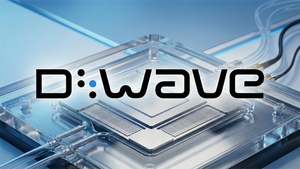Financial News
Biden-Harris Administration Sets Record-Breaking $163 Billion in Federal Procurement Opportunities to Small Businesses
WASHINGTON, July 18, 2023 (GLOBE NEWSWIRE) -- Today, Administrator Isabella Casillas Guzman announced that the Biden-Harris Administration exceeded its small business contracting goal of 23% in fiscal year (FY) 2022, awarding an all-time high 26.5% of federal contract dollars to small businesses. This historic level amounts to a $162.9 billion investment in the small business economy – an $8.7 billion increase from the previous fiscal year. Ten federal agencies earned an “A+” for their agencies’ achievements in small business contracting, and an additional ten agencies received an “A” grade. The federal government, overall, earned an “A” on this year’s government-wide scorecard.
“Through President Biden’s Investing in America agenda, we have championed initiatives to fuel our nation’s historic economic growth while reducing barriers and ensuring fair competition in federal contracting,” said Administrator Guzman. “The Biden Administration continues to raise the bar, reaching a record high level of contract spending with small businesses, supporting over one million good-paying jobs in manufacturing, construction, research & development, and other vital industries.”
SBA plays a crucial role in setting contracting goals for each agency and collaborates closely with government buyers to emphasize the prioritization of small businesses in the procurement process. Individual agency scorecards with a detailed explanation of the methodology are available at SBA.gov.
Highlights of the overall performance of the federal government include:
- For the second consecutive year, Small Disadvantaged Business (SDB) spending exceeded its 11% goal. The noteworthy achievement reflects President Biden’s unwavering commitment to meeting an ambitious SDB contracting goal.
- Service-disabled Veteran-owned small business spending has exceeded its 3% goal, reaching 4.6%. This achievement translates to $28.1 billion in procurement, reflecting a $3 billion spending increase compared to the previous year.
- Historically Underutilized Business Zone (HUBZone) small businesses were granted a record-breaking $16.3 billion in federal contract awards, marking the highest amount ever awarded to this category in the program’s history. Despite not meeting the 3% statutory goal, the federal government made significant strides in supporting and empowering HUBZone small businesses.
- Women-owned Small Businesses (WOSB) received more than $26 billion for the fourth straight year, accounting for 4.6% of the Fiscal Year 2022 total eligible dollars, slightly below the 5% target. The overall dollars granted to WOSBs increased from $26.2 billion in Fiscal Year 2021 to $28.1 billion in Fiscal Year 2022. Moreover, the funds set aside specifically for WOSB firms amounted to $1.56 billion in Fiscal Year 2022, showing a remarkable 17% surge. This growth followed the expansion of certified WOSB firms from approximately 1,000 to nearly 6,000 and the NAICS codes in which women-owned businesses can receive set-aside awards. With over 92% of federal spending covered by NAICS codes eligible for WOSB set-aside awards, the SBA remains dedicated to collaborating with contracting agencies, actively pursuing future changes to achieve the 5% WOSB goal.
- The federal government achieved its small business subcontracting goals, awarding 30.9%, or $79.1 billion, to small business subcontractors.
- In Fiscal Year 2022, although there was a significant increase in small business awards, the number of small businesses receiving prime contracts with the federal government continued a multi-year trend of decreases in small-business vendors, spanning a decade.
Expanding Access to Federal Contracting:
The Small Business Administration, under the Biden-Harris Administration, has made it a top priority to expand access to federal contracting. The SBA, under Administrator Guzman’s leadership, has made several strategic and targeted changes to ensure small businesses, particularly those in underserved communities, are empowered to find and take advantage of opportunities presented by President Biden’s signature legislation, including the historic Bipartisan Infrastructure Law, CHIPS and Science Act, and more. Actions include:
- Releasing new guidance, “Creating a More Diverse and Resilient Federal Marketplace through Increased Participation of New and Recent Entrants.” This executive action includes several new initiatives for encouraging new entrants to the federal contracting space, including a Supplier Base Dashboard to track an agency's mix of new entrants, recent entrants, and established vendors.
- Announcing several reforms in small business contracting, including directing all agencies to include progress toward achievement of each of the socioeconomic small business goals as evaluation criteria in all performance plans for Senior Executive Service (SES) managers that oversee the acquisition workforce or agency programs supported by contractors.
- Revising an agreement with federal agencies to promote maximum utilization of 8(a) certified SDBs to ensure equitable access to contracting opportunities.
- Updating NAICS codes eligible for WOSB set-aside contracts expanded from 444 to 759, representing a 70% increase.
- Activating ChallengeHer, a government contracting education initiative to help women-owned small business gain access to federal contracts and encourage participation in the SBA’s WOSB program alongside partners from Women Impacting Public Policy (WIPP) and American Express (AMEX).
- Creating a new HUBZone map that updates designations and census tract boundaries resulting from the 2020 Census.
- Implementing a new certification system for SDVOSBs as part of the migration of Veteran-owned business certification from the Department of Veterans Affairs (VA) to SBA.
*The prime contract goal achievements by dollars and percentages for all categories are as follows:
| Category | Goal | 2018 | 2019(1) | 2020(1) | 2021(1) | 2022(1) | |||||
| $(B) | %SB | $(B) | %SB | $(B) | %SB | $(B) | %SB | $(B) | %SB | ||
| Small Business | 23% | $120.8 | 25.1% | $132.9 | 26.5% | $145.7 | 26.0% | $154.2 | 27.2% | $162.9 | 26.5% |
| Small Disadvantaged Business | 5% | $46.5 | 9.7% | $51.6 | 10.3% | $59.0 | 10.5% | $62.4 | 11.0% | $69.9 | 11.4% |
| Service-Disabled Veteran Owned Small Business | 3% | $20.6 | 4.3% | $22.0 | 4.4% | $23.9 | 4.3% | $25.0 | 4.4% | $28.1 | 4.6% |
| Women-Owned Small Business | 5% | $22.9 | 4.8% | $26.0 | 5.2% | $27.1 | 4.9% | $26.2 | 4.6% | $28.1 | 4.6% |
| HUBZone | 3% | $9.9 | 2.1% | $11.4 | 2.3% | $13.6 | 2.4% | $14.3 | 2.5% | $16.3 | 2.7 % |
1. FY 2019-22, in accordance with federal law, SBA provided double credit, for Scorecard purposes only, for prime contract awards in disaster areas that were awarded as a local area set aside and a small business or other socioeconomic set aside when the vendor state is the same as the place of performance (15 USC § 644(f)), and for awards to small businesses in Puerto Rico or covered territories (15 USC § 644(x)(1)). SBA also included in the calculation of government-wide achievements the Department of Energy first-tier subcontracts required to be included by section 318 of the Consolidated Appropriations Act of 2014 (“CAA”), Public Law 113-76.
Small Business Federal Procurement Scorecard Overview:
The annual Procurement Scorecard serves as a vital assessment tool, gauging the effectiveness of federal agencies in meeting their small business and socioeconomic prime contracting and subcontracting goals. This comprehensive Scorecard not only offers accurate and transparent contracting data but also provides detailed reports on agency-specific progress.
Working in collaboration with federal agencies, the Small Business Administration annually assists in establishing individual prime and subcontracting goals. Moreover, the SBA ensures that the federal government, as a whole, meets or surpasses the government-wide statutory goals mandated in 15(g)(1) of the Small Business Act for each category.
To maintain the quality and accuracy of contracting data, every federal agency takes responsibility for its own data. Simultaneously, the SBA conducts supplementary analyses to identify potential data anomalies. Working alongside federal agency procurement staff, the SBA provides crucial analyses and tools to facilitate data review, enhance procurement systems, and conduct training to improve accuracy. This collaborative effort ultimately strengthens the federal government's commitment to small business participation and success in government contracts.
###
About the U.S. Small Business Administration
The U.S. Small Business Administration helps power the American dream of business ownership. As the only go-to resource and voice for small businesses backed by the strength of the federal government, the SBA empowers entrepreneurs and small business owners with the resources and support they need to start, grow or expand their businesses, or recover from a declared disaster. It delivers services through an extensive network of SBA field offices and partnerships with public and private organizations. To learn more, visit www.sba.gov.

Christine Saah Nazer U.S. Small Business Administration 202-756-0304 christine.saahnazer@sba.gov
More News
View More




Recent Quotes
View MoreQuotes delayed at least 20 minutes.
By accessing this page, you agree to the Privacy Policy and Terms Of Service.



